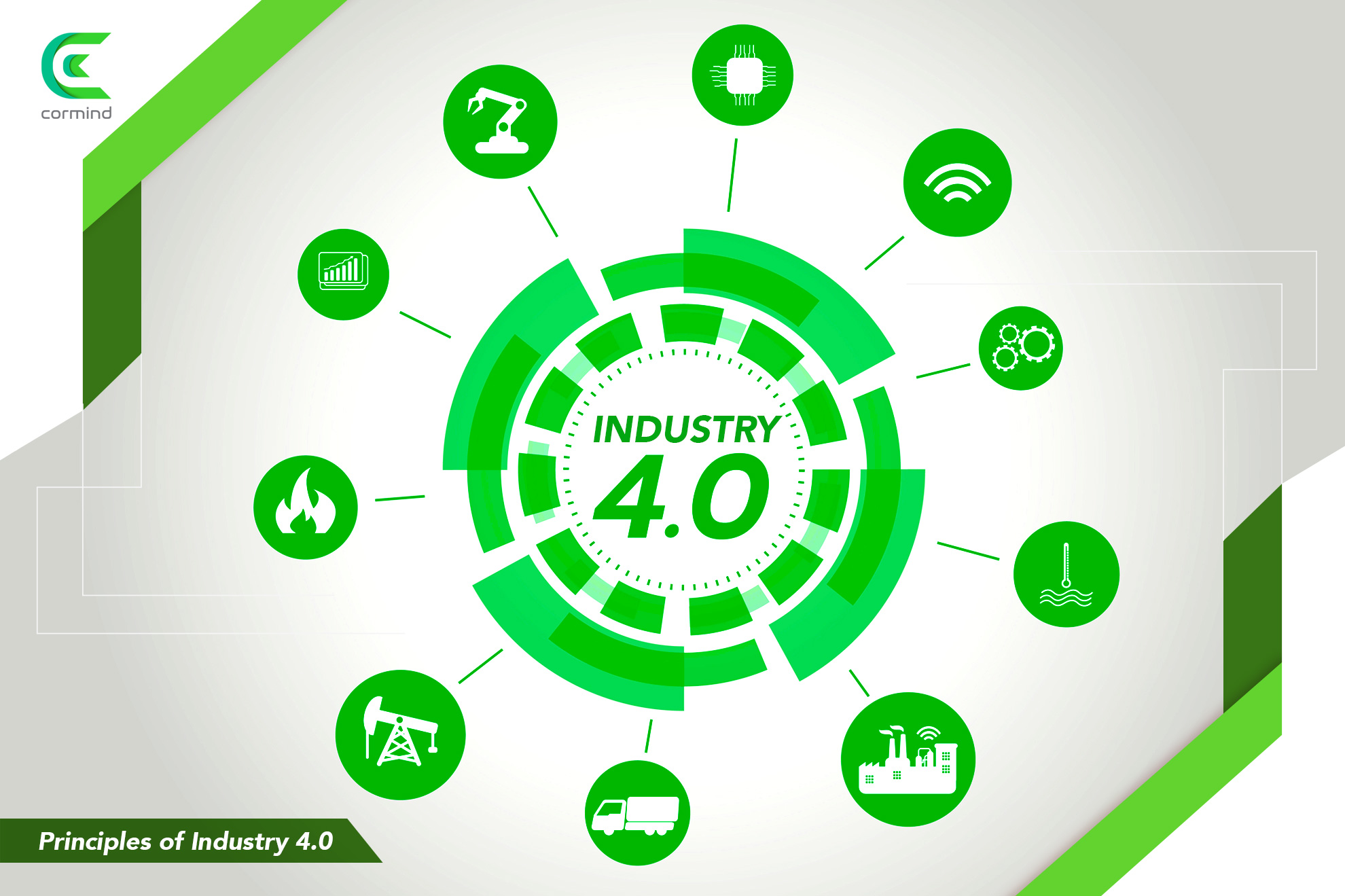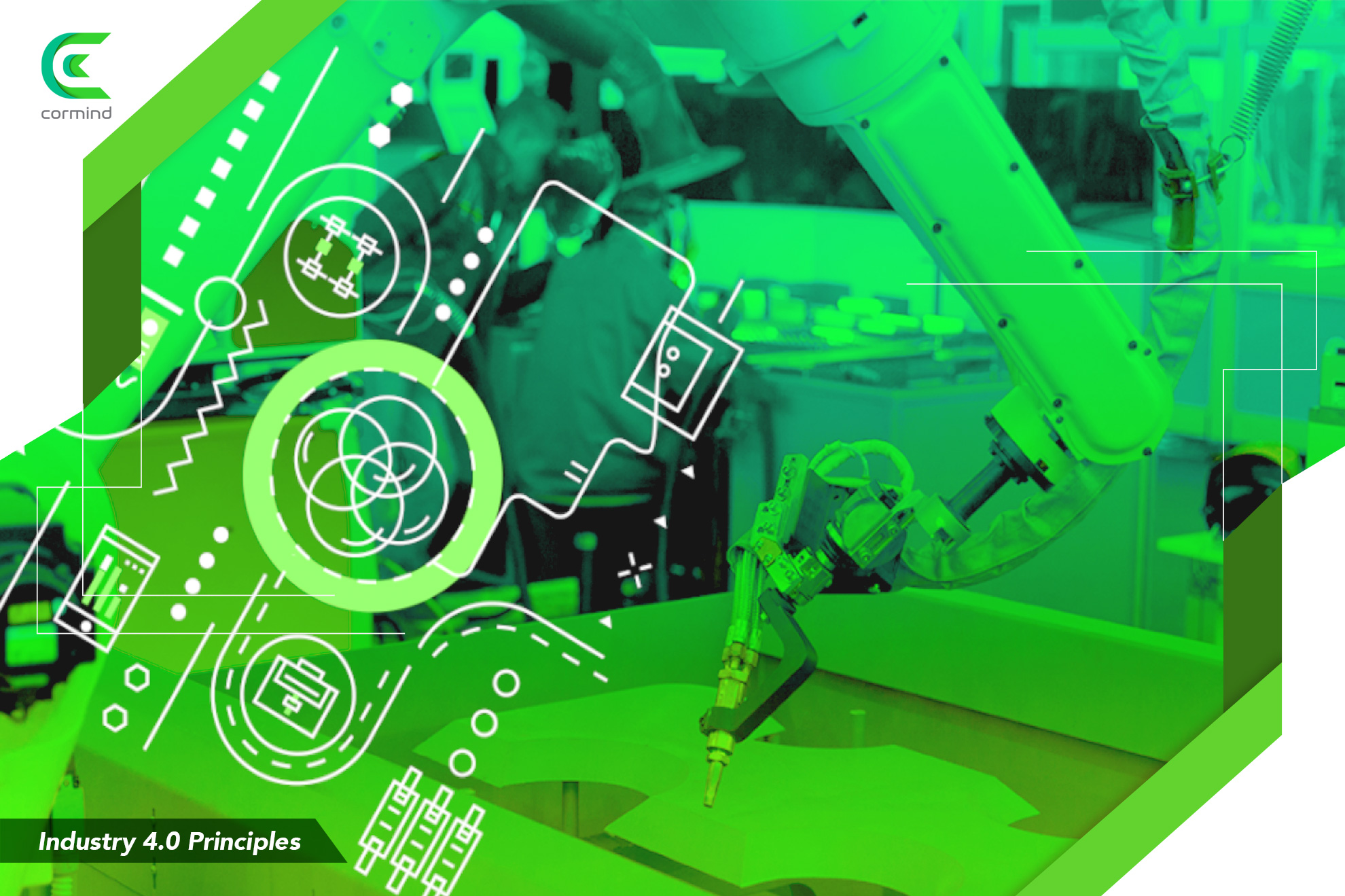Industry 4.0 principles; The concept of industry 4.0, does not contradict the concept of the future, but rather integrates and minimizes the mistakes in the business world and proves that not only humans can think but also machines. The most important cornerstone of industry 4.0 principles is IoT technology. IoT is a system that allows objects to communicate with each other and share the data obtained as a result of this communication with the manager.
History of Industry 4.0
- The steam engine was invented in 1712 and production facilities with machines started to establish in the 18th century.
- Mass production, which was created by separating into two parts as electricity and workforce, was started in the 19th century with the inventions of the telegraph in 1840 and the telephone in 1880.
- The first microcomputer (Altair 8800) was introduced in 1971 and Apple 1 was introduced in 1976. These two inventions are important developments for the industry in the 20th century.
- A new era has begun in the 21st century with autonomous machines and virtual environments. AutoIDLab, the Internet of Things, and the Cellular Transport System took their places in history in 1988, 2000, and 2010, respectively.
industry 40 principles
Industry 4.0 Principles
Virtualization in the 4th Industrial Revolution
This concept, which is defined as the virtual copy of smart factories; is realized by linking sensor and system data with simulation models and virtual facilities.
Autonomous Management: It refers to cyber-physical systems in which smart factories can make their own decisions.
Industry 4.0. Interoperability
It allows people and smart factories to communicate with each other by benefiting from the Internet of Things and the Internet of Services. The devices in the factory can communicate with each other with a feature enabled by IoT technology. The manager is informed directly in case of any failure in this communication, and it is possible to intervene in the system immediately.
Industry 40 Real-Time Capability
It refers to analyzing the generated data. The most important innovation introduced with industry 4.0 is the real-time and accurate readability of data. It aims to achieve maximum performance by collecting the data of the devices on a single master device and analyzing them by the system analyst. It is possible to intervene instantaneously in case of failures or incorrect events. Also, you do not need to be physically close to the device for this intervention. In other words, even if you are away from the factory, you can intervene in production in real time.
Industry 4.0 Modularity
It provides a flexible adaptation system to smart factories because of the requirements of individual modules that need to change. You used to need to supply a new version of a large device or supply a different device to make a small change in production before Industry 4.0. However, thanks to the developing technology, you can achieve your goals with very simple software interventions. In this way, you achieve increased diversity in production. You can focus on R&D and innovation.
Industry 4-0 Service Orientation
Cyber-physical systems, people, and smart factory operating systems have been made accessible to everyone with the Internet of Services.
Industry 4.0 principles present the future to us so comfortably and cautiously that we all wonder what may happen in the next five years. Industry 4.0 is referred to as the fourth industrial revolution. We can define the first revolution as mechanical production systems created by using the power of steam and water; the second revolution as mass production with electric power, the third revolution as the digital revolution and we can define the fourth revolution by living it. It is because the 4.0 Industrial Revolution has opened the door to endless industrial technology. Many innovations such as factories working without manpower, devices communicating with each other, systems that start/end production with outside intervention without being inside the factory, error-free uniform production, and product development in an easy way came into our lives with the 4th industrial revolution. The entire system automatically communicates and informs the manager from efficient use of electricity to a small pixel error. We are going to enjoy a unique industrial revolution with the development of artificial intelligence technology.







